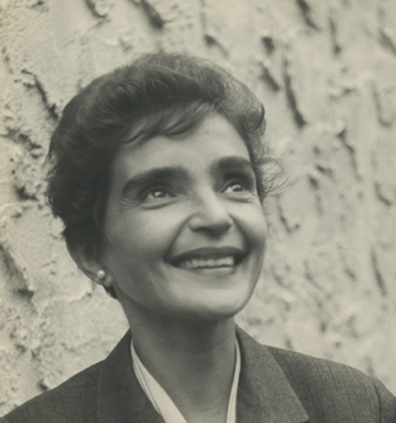GLADYS
Excerpts Chapter Two
In the first years my father struggled quite a bit. But by the time I was five or six he had made it in a real middle-class way, and we moved to 21st Street. My father’s business was called “The Triangle Fire-Proof Door Company,” and it was part of the first attempts in the building trades to fire-proof buildings. We had a very nice house on a nice street with nice trees and a nice garden and everything was just like in the school reader, “Sally, Dick and Jane.” We had two automobiles, and my mother learned to drive. And we had a full-time sleep-in housekeeper. But it was all within a rather limited framework; we weren’t wealthy, but we were comfortable.
It was really a quite successful business until later in the Depression and then my father was destroyed. Everything he had built up was demolished.
He went through a period of insomnia and mental depression, and at the time not many people knew about psychiatrists. He’d be sitting at the dinner table and would drop off to sleep in the middle of a mouthful of food. And I remember him walking up and down …
But my outstanding recollection of him has always been of a very quiet, very subdued, and depressed person. I loved him dearly but I just didn’t quite know how to talk to him. It was very hard to talk to him. My sister tells me stories about how we’d sit around the dinner table and I was always on his right. He just adored me apparently, and always gave me some kind of a tap or touch or something. But it was quiet, always very quiet.
And then he committed suicide …
In the years after my father’s death, we all had mental breakdowns. My brother’s was rather extended. He graduated from law school, got married, then after about a year or so of marriage, he really started breaking down. I know my mother was very resentful that he married: he should have stayed around for a while longer and taken care of her.
Eventually my mother had to sell the house and my mother and I moved to a one-bedroom apartment just a few blocks away. I can’t even remember where I slept. I finished the eighth grade at Public School 193 and then went to James Madison High School. Periodically, my brother would come back after his marriage broke up. At times he was too ill to do anything …
I was aware, though, that there was a Depression going on. I was young and, though I never knew anybody who was really poor, I remember the strikes, the talk of unemployment, and the mood of the times. But, in personal terms, all the Depression meant to me was that something terrible had happened to my father’s business. And although the only difference, at first, was that we couldn’t have the sleep-in help and we went down to one car, his death, I think, radicalized us all.
When I was fourteen, Bobby, a very nice boy I knew – I didn’t have a crush on him or anything – came to my house one day and asked me if I’d like to join the YCL, the Young Communist League. I knew what the YCL was and I knew something about the Communist movement because my brother and sister had been involved in politics to some extent. I had heard about Sacco and Vanzetti and the Scottsboro Boys . My brother used to argue about politics with my father. So when Bobby came to see me and asked if I wanted to go to a meeting I said sure. And he put it in such a way that … oh it sounds so clichéd, you know: there are people who haven’t got a lot of things and the YCL, the Communists, are trying to make things better in the world.
And this appealed to me as a way of, I don’t like to use the words “helping people,” but it seemed to make sense to me that maybe things could be better if a lot of people tried to do something about it. It was a terrible thing, I thought, that there were people who didn’t have as much as I had, that there were people who were hungry. And I remember going to meetings thrilled at the idea that we were going to try to do something about all of that. I guess for as long as I can remember, and still it burns in me now, I just couldn’t stand unfairness …
It just gave me a whole purpose for living. I mean what fifteen year old thinks about whether you should live or not but I just felt differently. I felt welcome somewhere, a part of something. It was very little a cerebral, a thought-out thing. It was much more the spontaneous feelings of wanting to do something for people. I didn’t know the first thing about Marxism-Leninism when I joined the YCL. All I knew was that there were good people and bad people, and we had to do something about the bad people who were doing bad things to the good people. It was as simple as that. You were either on one side or the other …
